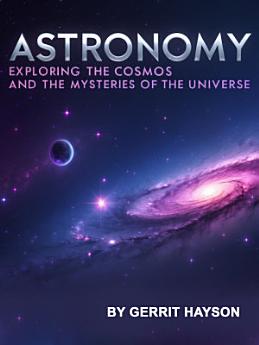Astronomy: Exploring the Cosmos and the Mysteries of the Universe
About this ebook
The earliest astronomers were not scientists in the modern sense, but rather keen observers who noticed patterns in the seemingly chaotic movements of celestial objects. The Babylonians, working without telescopes or sophisticated mathematics, managed to predict eclipses with remarkable accuracy by carefully tracking the movements of the sun and moon over many years. Their observations laid the groundwork for the zodiac system we still recognize today, dividing the sky into twelve sections based on the apparent path of the sun through the constellations.
Ancient Greek philosophers took these observations and began to ask deeper questions about the nature of the universe itself. Aristotle proposed that Earth was a sphere, supporting his argument with observations of how ships disappeared over the horizon and how the Earth's shadow on the moon during lunar eclipses was always circular. Eratosthenes went further, calculating the circumference of Earth with surprising accuracy using nothing more than shadows cast by the sun at different locations.







